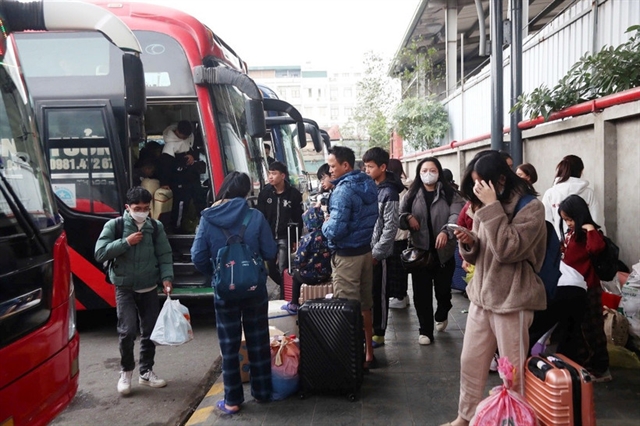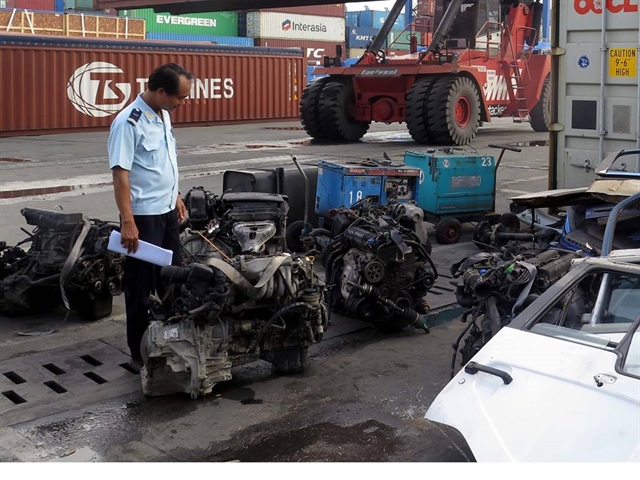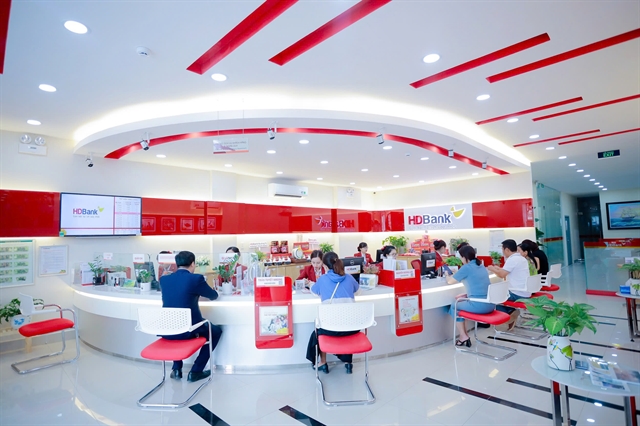 Economy
Economy

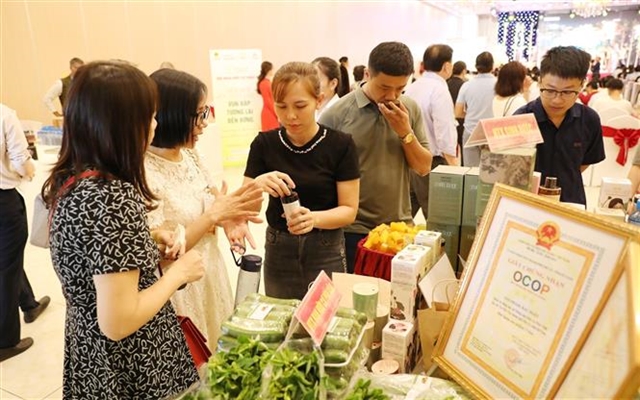 |
| An organic production facility from Ninh Bình Province showcases its products at the conference. — VNA/VNS Photo Đức Phương |
NINH BÌNH — As Việt Nam hosts the 8th Organic Asia Congress (OAC) 2025 in Ninh Bình Province, the country is putting organic farming firmly in the spotlight.
More than 550 delegates from 33 countries and territories have gathered for the three-day event, which opened on Wednesday, at a time when the global organic agriculture market has surged past 135 billion euros (about US$160 billion). China now ranks as the world’s third-largest market after the United States and Europe.
At the opening, IFOAM-Organics Asia President Mathew John highlighted how grassroots initiatives in Asian villages are driving the organic movement. He noted that the Ninh Bình conference provides a valuable opportunity to showcase Việt Nam’s progress while discussing regional and global solutions.
Speakers repeatedly stressed the urgency of tackling climate change, describing organic agriculture as both a vital solution and an essential necessity.
“Food security, public health and the balance of ecosystems are all under threat,” said Trần Anh Dũng, vice chairman of Ninh Bình Provincial People’s Committee. “Organic farming is no longer a trend but a strategic path, ensuring harmony and sustainability.”
Việt Nam is making a clear transition from traditional farming to organic, ecological and multi-value agriculture. National policies such as Decree 109/2018, Decision 885 issued in 2020, and the 13th Party Congress Resolution provide a strong legal framework prioritising green and organic growth.
In Ninh Bình, local authorities are linking organic agriculture with eco-tourism and community development to build momentum for sustainable progress.
By 2024, Ninh Bình had expanded its organic farming area to 26ha of certified medicinal plants, more than 5,000ha of rice and 700ha of vegetables grown to national organic standards, while 6,000ha of rice contributed to reducing greenhouse gas emissions in line with climate goals.
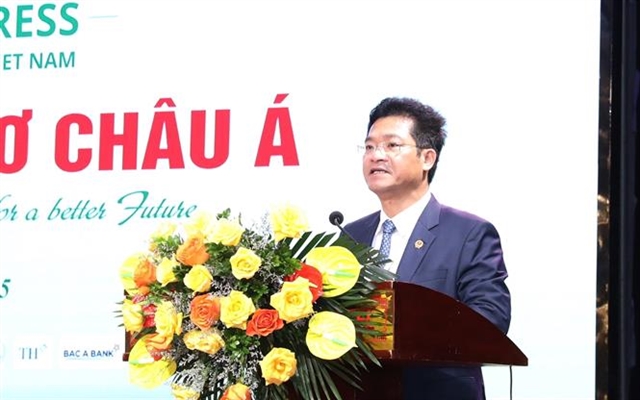 |
| Trần Anh Dũng, vice chairman of Ninh Bình Provinicial People’s Committee, speaks at the event. — VNA/VNS Photo Đức Phương |
Multi-value models like Tam Cốc’s golden rice fields and Múa Cave lotus pond have linked farming with tourism, helping attract 31.7 million visitors and VNĐ31.1 trillion ($1.2 billion) in revenue during 2020–25, affirming the province’s status as a leading destination.
Executive Director of IFOAM Asia Jennifer Chang praised Việt Nam’s rapid rise in organic agriculture.
Since the establishment of the Vietnam Organic Agriculture Association in 2011, cultivated organic land has expanded to hundreds of thousands of hectares by 2023, making Việt Nam one of the fastest-growing markets in Southeast Asia, she said.
Organic products from Việt Nam now reach more than 100 global markets while domestic demand, especially in major cities, is climbing steadily.
Chang said hosting the conference gave Việt Nam a chance to both share its experiences and learn international best practices, adding that she was confident organic farming would become a key pillar of the country’s sustainable food system by 2030 — a vision also embraced by the global organic community.
President of the Vietnam Organic Agriculture Association Hà Phúc Mịch emphasised this year’s theme, ‘Organics for a Better Future’. He said Việt Nam’s policy framework and local implementation prove that organic farming is a natural path in the era of global integration.
However, he acknowledged that the sector is still in its early stages and must continue learning from international experience. The conference serves as a platform to promote Việt Nam’s organic products, foster international integration, share knowledge and connect stakeholders across Asia.
For Ninh Bình, organic agriculture is both opportunity and challenge. The province faces difficulties such as small-scale production, high initial costs and complex farming procedures.
“Farmers are still hesitant to switch to organic production due to the high initial investment costs and complex production processes,” said Dũng, the vice chairman of Provincial People’s Committee.
Yet local authorities are supporting organic rice, vegetables and speciality products, linking them with branding and certification. With the advantage of tourism, Ninh Bình is pursuing an ecological and multi-value agricultural model to boost income and sustainability.
Looking ahead, Dũng said the province plans to expand production zones, apply advanced standards and support farmers in conversion. Investment will focus on high technology, digital transformation, traceability and transparent distribution to strengthen consumer trust.
He expressed hope for continued support from the international community.
The three-day conference focuses on policy, market and practice, addressing organic growth, finance, climate response, supply chains, fraud prevention and showcasing farming models with shared regional experience. — BIZHUB/VNS


